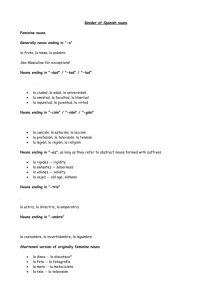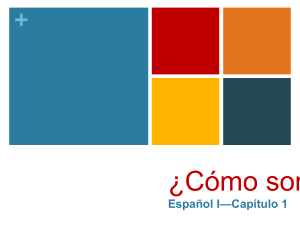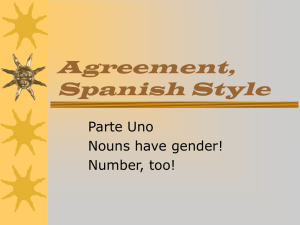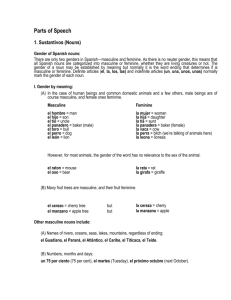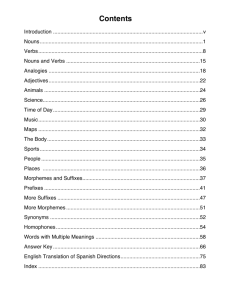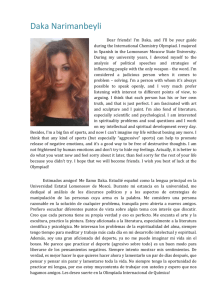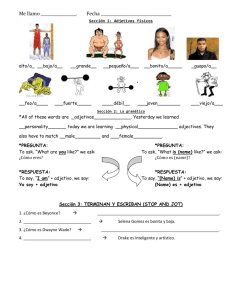Making Nouns Plural
advertisement
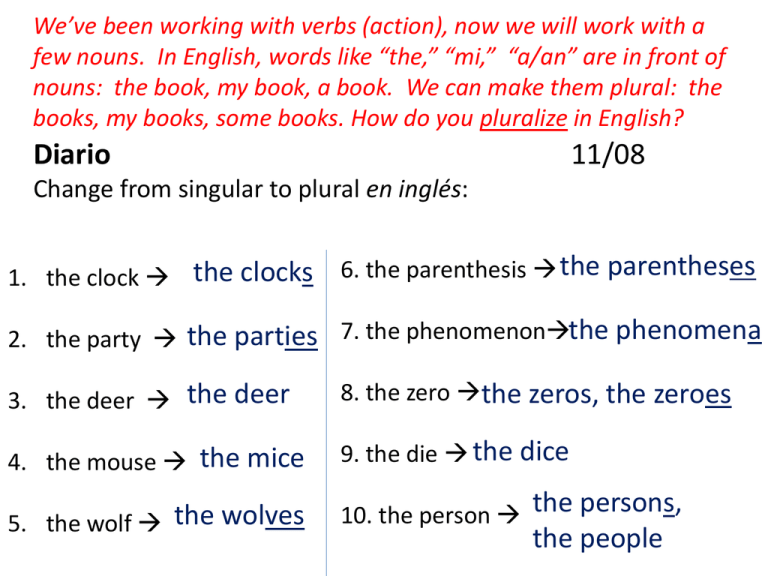
We’ve been working with verbs (action), now we will work with a few nouns. In English, words like “the,” “mi,” “a/an” are in front of nouns: the book, my book, a book. We can make them plural: the books, my books, some books. How do you pluralize in English? Diario 11/08 Change from singular to plural en inglés: 1. the clock the clocks 6. the parenthesis the parentheses 2. the party the parties 7. the phenomenonthe phenomena 3. the deer the deer 8. the zero the zeros, the zeroes 4. the mouse the mice 9. the die the dice 5. the wolf the wolves 10. the person the persons, the people NOUNS person, place, thing, idea Many masculine nouns end in -o: río banco piano carro masculine NOUNS person, place, thing, idea Many feminine nouns end in –a: casa plaza guitarra familia masculine feminine NOUNS person, place, thing, idea For nouns that end in other letters, learn their gender: naríz (nose) f. árbol (tree) m. televisión (tv) f. parque (park) m. masculine feminine la clase el mapa la mano Note: These are exceptions! NOUNS person, place, thing, idea Do not think of a thing as “boy” or “girl.” The gender of a noun was determined sometime in the history of the word or from its origin (Latin, Greek, Arabic, etc.) masculine feminine la clase el mapa la mano NOUNS have gender & number. person, place, thing, idea Remember the gender is assigned to the noun! As an English speaker you are not accustomed to this detail. masculine or feminine singular or plural masculine feminine la clase el mapa la mano NOUNS have gender & number. person, place, thing, idea Now … let’s make things plural. masculine or feminine singular or plural masculine feminine la clase el mapa la mano NOUNS have gender & number. person, place, thing, idea masculine or feminine singular or plural los masculine feminine las la clase el mapa la mano Changing the noun to plural First, determine the gender of the noun (m/f), and write the definite article (el/la). el (the man) el (the museum) la (the house) la (the woman) el (the hotel) (the university) “-s” or “-es” Los hombres (the men) Los museos (the museums) Las casas Las mujeres Los hoteles (the houses) (the women) (the hotels) Las universidades la Second, look at the last letter of the word and add: (the universities) Los gansos Z C spelling change el el (the fish) Los peces (the fish) (the pencil) Los lápices (the pencils) la (the cross) Las cruces (the crosses) FYI: “El pez” is fish as in the living being. Fish as a food dish is “el pescado.” (Just like we say “the beef” and not “the cow” when it’s a food dish.) Nouns are also used with these … unos unas mis tus sus
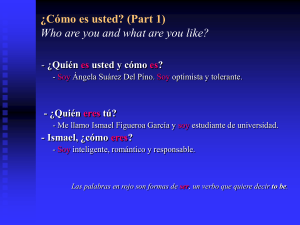
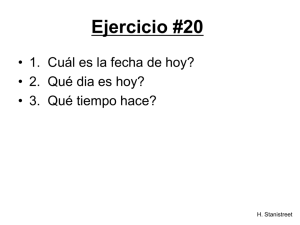
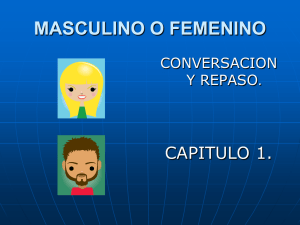
![UNIT 3 THEME: ¿Quién soy yo? LEARNING TARGETS [Who am I?]](http://s2.studylib.net/store/data/014263740_1-916b631362a1d5114e5b2abcf110406d-300x300.png)
